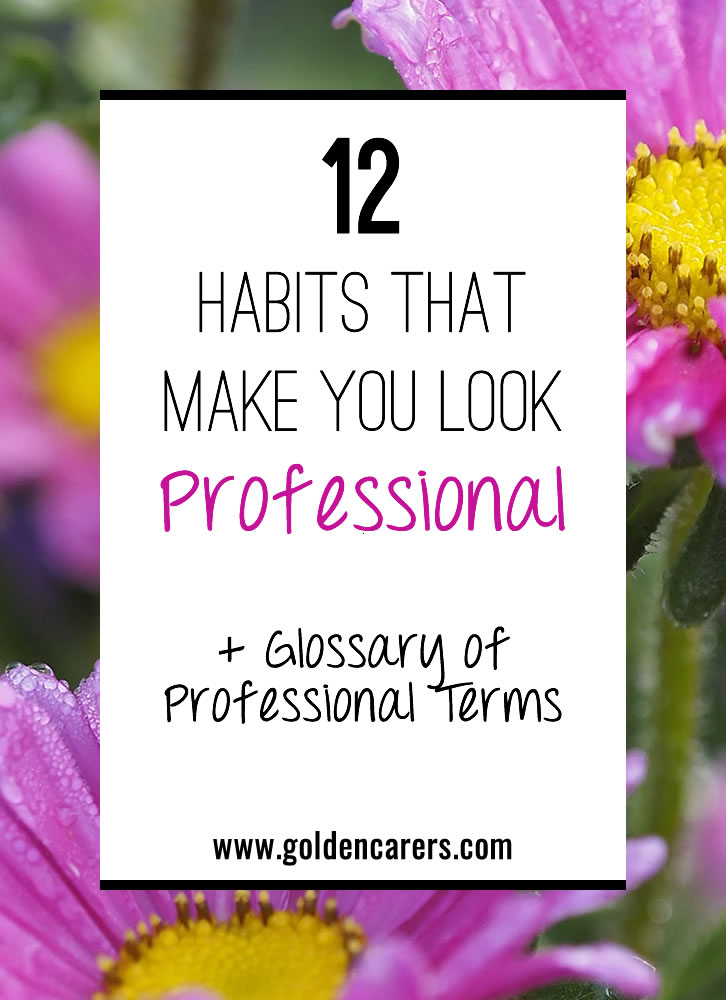
12 Habits That Make You Look Professional
By Haley Burress United States
Found In: ›Activities ›Articles

Related Activities
Comments Post a Comment
 16th Nov 2020
Activities Coordinator
16th Nov 2020
Activities Coordinator
 22nd Nov 2020
22nd Nov 2020
 16th Nov 2020
Lifestyle
16th Nov 2020
Lifestyle
The hardest thing was the family visits with people trying to talk to each other through a window or a door wearing masks, most of the residents are hard of hearing, and with masks on and shields it was made so difficult to hear. But we have all come through it and hope there will not be another breakdown any time soon.

 16th Nov 2020
Activity Director
16th Nov 2020
Activity Director
Thanks for sharing this information
It sounds like you are doing a good job given the circumstances
You may want to try having volunteers call residence or family members call them on phone
You could also have a zoom meetings or other ways on the Internet for getting
together
Thanks again

 How to Plan a Trivia Night
How to Plan a Trivia Night
 What to Include in a Staff Meeting
What to Include in a Staff Meeting
 12 Tips for Preventing Falls
12 Tips for Preventing Falls
 Creative Pursuits That Improve Quality of Life
Creative Pursuits That Improve Quality of Life

 New Zealand
New Zealand
Philip